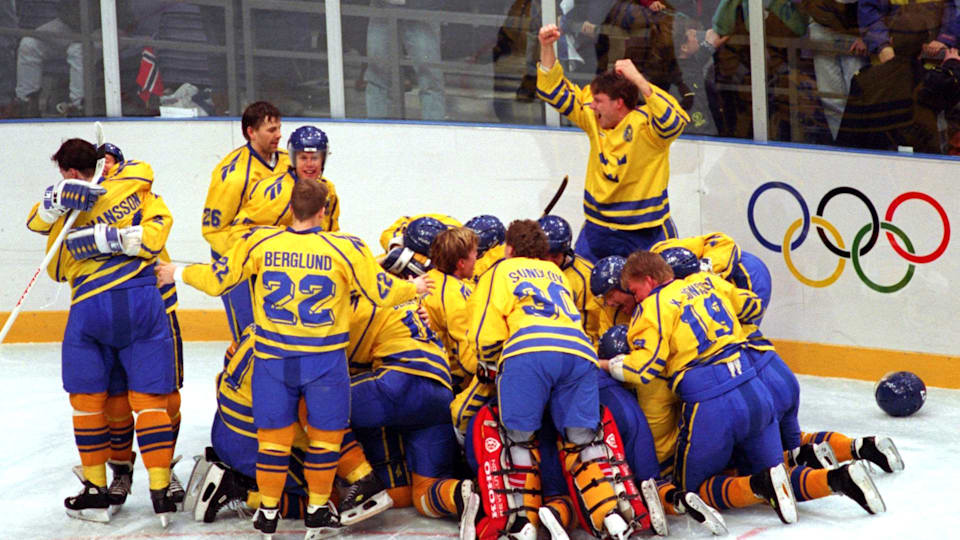
Russia did not carry anything like the same aura of invincibility that had seen them win six of the previous seven gold medals. USA, too, also found itself in a trough, winning only once in the tournament. That left the field open, with Sweden, Finland, Canada and Slovakia all impressing in the early stages. But it wasn’t until the quarter-final stage that the strongest nations began to emerge.
Finland beat USA, Sweden knocked out Germany. Slovakia were knocked out by Russia, while Canada scraped past the Czech Republic.
The semi-finals provided two classic contests. Finland took an early 2-0 lead against Canada, but the Canadians responded with five goals on their way to a 5-3 win. In the other match, Sweden, searching for its first ice hockey gold despite competing in 15 previous Olympic competitions, beat Russia 4-3.
When the two teams had met in the preliminary round, Canada won 3-2. The final proved just as tight, with Sweden holding a narrow 1-0 lead at the end of the second period. The final period, though, saw Canada equalise and then take the lead, before Sweden’s Magnus Svensson leveled the scores at 2-2 with less than two minutes remaining.
Overtime produced no decisive goal, so the gold medal was decided on a shootout. Even that couldn’t produce a winner, so the match went into a sudden-death shootout. Finally Peter Forsberg scored for Sweden, and then watched as goalkeeper Tommy Salo kept out Paul Kariya’s shot. After 74 years of trying, Sweden were Olympic champions.
